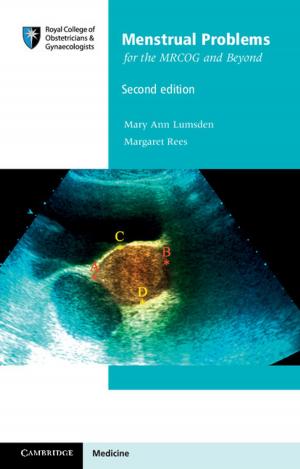Treatment-Related Stroke
Including Iatrogenic and In-Hospital Strokes
Nonfiction, Health & Well Being, Medical, Specialties, Internal Medicine, Neurology| Author: | ISBN: | 9781316687338 | |
| Publisher: | Cambridge University Press | Publication: | December 1, 2016 |
| Imprint: | Cambridge University Press | Language: | English |
| Author: | |
| ISBN: | 9781316687338 |
| Publisher: | Cambridge University Press |
| Publication: | December 1, 2016 |
| Imprint: | Cambridge University Press |
| Language: | English |
Up to 15% of all strokes occur in hospitalized patients, many of whom are there for surgical procedures or cardiac disorders. Outcomes can be poor, with high mortality - possibly related to co-morbidities and the complexities of hospital care. Risk factors for in-hospital stroke include specific operations and procedures (such as cardiac surgery), previous medical disorders (especially a history of stroke or transient ischemic attack), and certain physiological characteristics (including fever and dehydration). More rapid diagnosis and evaluation for interventional therapies is needed. This major new book examines the causes of treatment-related stroke in most hospital-based situations. Therapeutic approaches – including interventional therapies and intra-arterial thrombolysis – are highlighted, including experimental agents and interventions where other treatment possibilities are limited. Increasing the awareness of such interventions is an important factor in reducing delays in the assessment of patients who have strokes while in hospital, thus decreasing morbidity and reducing costs.
Up to 15% of all strokes occur in hospitalized patients, many of whom are there for surgical procedures or cardiac disorders. Outcomes can be poor, with high mortality - possibly related to co-morbidities and the complexities of hospital care. Risk factors for in-hospital stroke include specific operations and procedures (such as cardiac surgery), previous medical disorders (especially a history of stroke or transient ischemic attack), and certain physiological characteristics (including fever and dehydration). More rapid diagnosis and evaluation for interventional therapies is needed. This major new book examines the causes of treatment-related stroke in most hospital-based situations. Therapeutic approaches – including interventional therapies and intra-arterial thrombolysis – are highlighted, including experimental agents and interventions where other treatment possibilities are limited. Increasing the awareness of such interventions is an important factor in reducing delays in the assessment of patients who have strokes while in hospital, thus decreasing morbidity and reducing costs.















